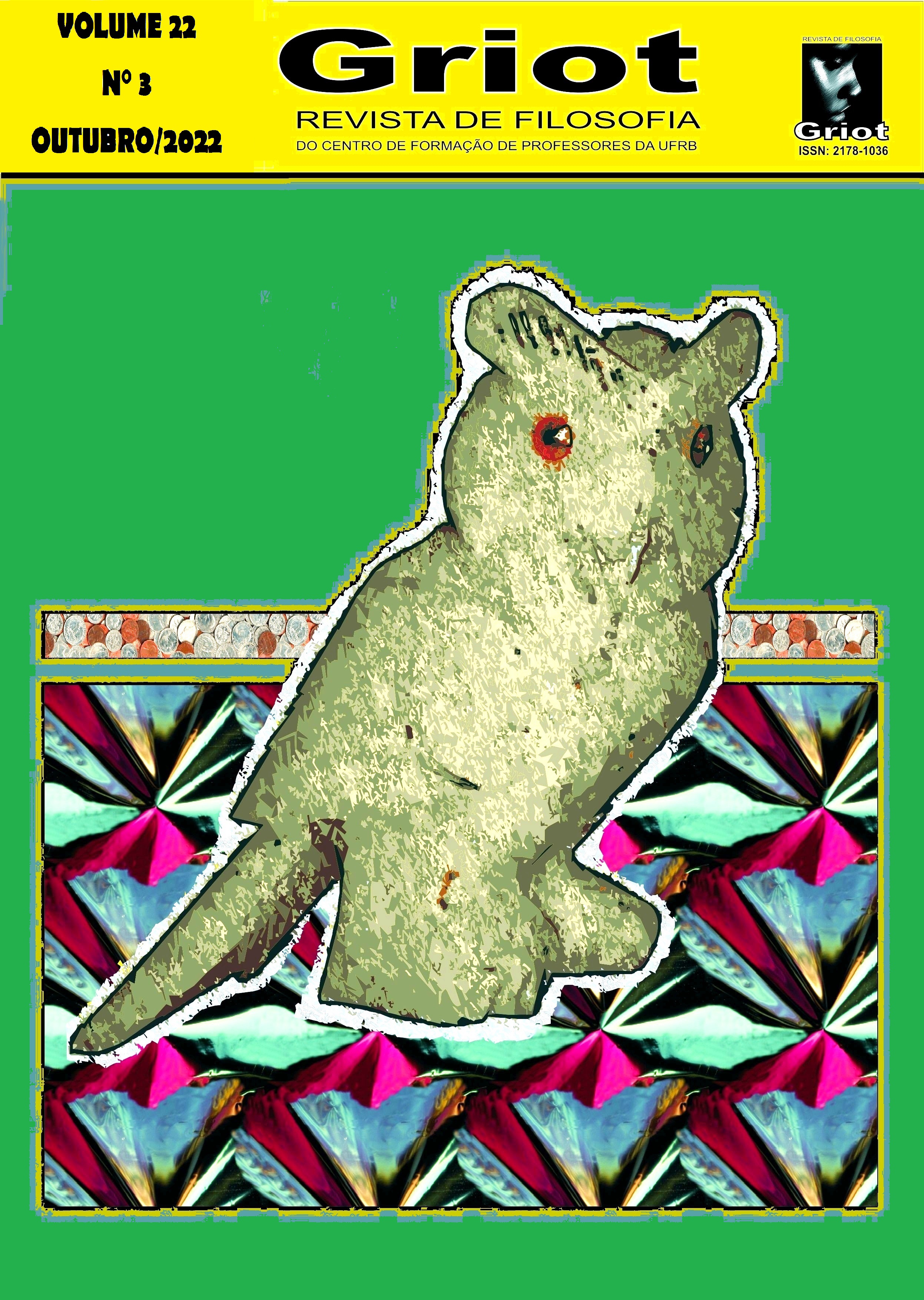The origin of kant’s anthropology
DOI:
https://doi.org/10.31977/grirfi.v22i3.3006Keywords:
Kantian Anthropology; Empirical Psychology; Physical Geography; Origins; Social Anthropology; Human Ends.Abstract
The origin of Kantian anthropology drives to the coherence of his philosophical project: the proposition of patterns to solve human problems according to a practical finality of the social experience. Thus, this article has as background the idea that although Kant began his critical philosophy by searching for the conditions for the possibility of the scientificity for Metaphysics, he flexed his project in 1793 in view of the human being, the main object of every modern philosophy, which has Anthropology as its correspondent science. Then, I intend to expose that the Kantian Anthropology did not come from the Empirical Psychology, despite to have used it in the beginning of the reflection, due to a lack of a better manual of empirical theory; it means that although the notion of subject being essential to the critical philosophy, this notion does not satisfy human finalities, which commit to the human species, in general. Finally, I intend to show that the Physical Geography is the initial point of Kant’s Anthropology due to be the knowledge of the world as physical as human and also to the importance of man as the main object, which has made inevitable its independence from Geography, once the aim was to found the science of man. This article also shed some light on comprehending a kind of forgetfulness of Kant’s Anthropology by the current social and cultural Anthropology, which was consolidated in the 19th century.
Downloads
References
ALLISON, Henry. Kant’s transcendental idealism. New Haven: Yale Univ. Press, 1983.
AZEVEDO, Henrique. A Antropologia como finalidade da filosofia em Kant. Campinas: Tese de Doutorado defendida na UNICAMP, 2019.
BRANDT, Reinhart. Kritischer Kommentar zu Kants Anthropologie in pragmatischer Hinsicht. Hamburg: Felix Meiner, 1999.
FRIERSON, Patrick. What is the Human Being? London / New York: Routledge, 2013.
GERLAND, Georg. “Immanuel Kant, seine geographischen und anthropologischen Arbeiten (I)”. In: Kant Studien, vol. 10, 1905.
STOCKING Jr., George. Delimiting Anthropology: Occasional Essays and Reflections. Madison: The University of Wisconsin Press, 2001.
HINSKE, Norbert. “Kants Idee der Anthropologie”. In: Die Frage nach dem Menschen: Aufriss einer philosophischen Anthropologie, Festschrift für Max Müller. Freiburg: Alber, 1966.
KANT, Immanuel. Correspondance (translated by Arnulf Zweig). Cambridge: Cambridge Press, 1999a.
KANT, Immanuel. Crítica da Razão Pura (tradução de Manuela Pinto dos Santos e Alexandre Fradique Morujão). Lisboa: Fundação Calouste Gulbekian, 2010.
KANT, Immanuel. Entwurf und Ankündigung eines Collegii der physischen Geographie nebst dem Anhange einer kurzen Betrachtung über die Frage: Ob die Westwinde in unsern Gegenden darum feucht seien, weil sie über ein großes Meer streichen. AA II, s. 9. In: https://korpora.zim.uni-duisburg-essen.de/kant/verzeichnisse-gesamt.html
KANT, Immanuel. Géographie (traduit par Michèle Cohen-Halimi, Max Marcuzzi et Valérie Seroussi). Paris: Aubier, 1999b.
KANT, Immanuel. Lectures on Anthropology (translated by Robert Clewis, Robert Louden, Felecitas Munzel and Allen Wood). Cambridge: Cambridge, 2013.
KANT, Immanuel. Vorlesungen über Anthropologie (AA XXV). Berlim, Walter de Gruyter, 1997.
KANT, Immanuel. Manual dos cursos de lógica geral (introdução e tradução de Fausto Castilho). Campinas: Editora Unicamp, 2002.
KUENH, Manfred. Kant, a Biography. Cambridge: Cambridge University Press, 2001.
LÉVI-STRAUSS, Claude. Totemismo hoje (tradução de Malcom Bruce Corrie). Petrópolis: Vozes, 1975.
MARQUARD, Odo. Des difficultes avec la philosophie de l'histoire: essais (Traduit par Olivier Mannoni). Paris: La Maison des sciences de l'homme, 2002.
MARTINELLI, Ricardo. “Wolff, Kant e le origini dell’antropologia filosofica”. In: MARTINELLI, Ricardo. Uomo, natura, mondo. Il problema antropologico in filosofia. Mulino, Bologna: 2004.
MENZER, Paul. Kants Lehre von der Entwicklung in Natur und Geschichte. Berlin: Georg Reimer, 1911.
MERCIER, Paul. Historia de la antropologia (traducción de Agustina Fort y Carme Huera). Barcelona: Editora Península, 1974.
PEREZ, Daniel Omar. “O projeto Antropológico de Kant”. In: BORGES, Maria. Comentários sobre a Antropologia de um ponto de vista pragmático de Kant. Florianópolis: Nefiponline, 2018.
ROUSSEAU, Jean-Jacques. Discurso sobre a origem e os fundamentos da desigualdade entre os homens (tradução de Maria Ermantina Galvão). São Paulo: Martins Fontes, 2005.
WILSON, Holly. Kant's Pragmatic Anthropology: Its origin, meaning and critical significance. New York: State of New York University Press, 2006.
Downloads
Published
How to Cite
Issue
Section
License
Copyright (c) 2022 José Henrique Alexandre de Azevedo

This work is licensed under a Creative Commons Attribution 4.0 International License.
The authors who publish in Griot: Revista de Filosofia maintain the copyright and grant the magazine the right of first publication, with the work simultaneously licensed under the Creative Commons Attribution 4.0 International License, allowing sharing and adaptation, even for commercial purposes, with due recognition of authorship and initial publication in this journal. Read more...









































































